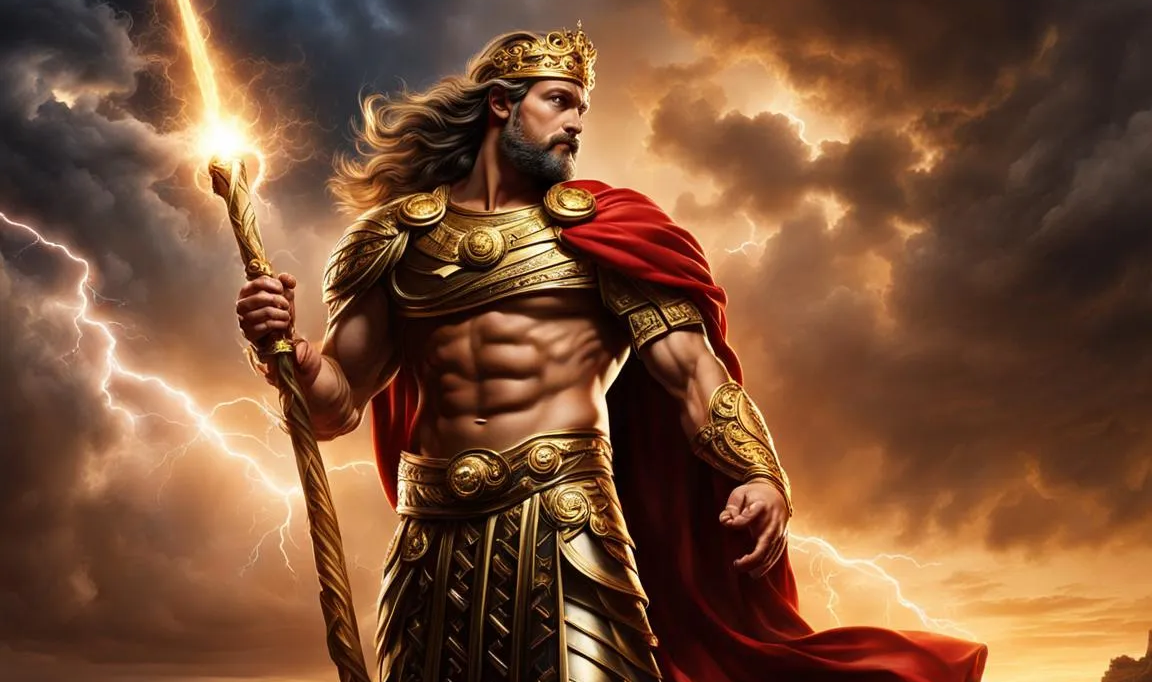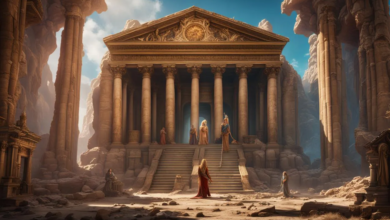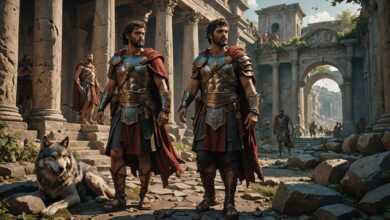Jupiter, known to the Greeks as Zeus, stands at the pinnacle of the Roman pantheon as the king of the gods, embodying the principles of sovereignty, justice, and authority. His origins trace back to the early Roman state religion, where he was worshipped as part of the Capitoline Triad alongside Juno, his sister and wife, and Minerva, the goddess of wisdom and war. Jupiter’s domain extended over the sky and all its phenomena, from the benign blue expanse to the terrifying storms that he could summon with a throw of his lightning bolt, his most potent symbol and weapon.
The worship of Jupiter was central to Roman identity and statecraft. He was not just a celestial deity but a protector of the Roman state, its people, and its legal and moral order. His chief sanctuary, the Temple of Jupiter Optimus Maximus on the Capitoline Hill, was not only Rome’s most important religious site but also a symbol of Rome’s power and resilience. Here, triumphing generals offered thanks for their victories, and the Senate sought divine guidance in matters of state.
Jupiter’s mythology intertwines with the legends of Rome’s founding and the broader tapestry of Roman myths. Unlike the Greek Zeus, whose narratives often explore his personal exploits and relationships with gods and mortals alike, Jupiter’s stories emphasize his role as a stabilizing force, a guardian of order against the forces of chaos and disorder. His interventions in mythological tales, whether through oracles, signs, or direct action, were viewed as manifestations of his will and guidance for the Roman people.
Jupiter was also the god of treaties and oaths; his name was invoked in legal agreements and vows, underscoring the sacredness of such commitments. The Romans saw him as the guarantor of justice and good governance, embodying the principle of “fides” or trustworthiness, which was a cornerstone of personal and public life.
In art and literature, Jupiter was portrayed as a regal, imposing figure, often seated on a throne with a sceptre and eagle, his sacred animal, symbolizing his dominion over the Roman Empire. The eagle, which would later become a symbol of imperial Rome, underscored Jupiter’s role as a divine patron of the Roman state and its military might.
Despite his majestic and somewhat distant persona, Jupiter was deeply ingrained in the daily lives of the Roman people. Festivals in his honour, such as the Feriae Iovis and the Ludi Romani, were celebrated with games, sacrifices, and public feasts, reflecting his integral role in Roman culture and society.
Jupiter’s legacy transcends the ancient world, influencing Western art, literature, and culture for centuries. As the embodiment of power, justice, and authority, his figure has been evoked as a symbol of leadership and governance, illustrating the enduring influence of Roman mythology on the Western imagination. Through Jupiter, the Romans expressed their deepest values and aspirations, making him not only a god of the skies but a timeless emblem of human endeavour and societal order.





